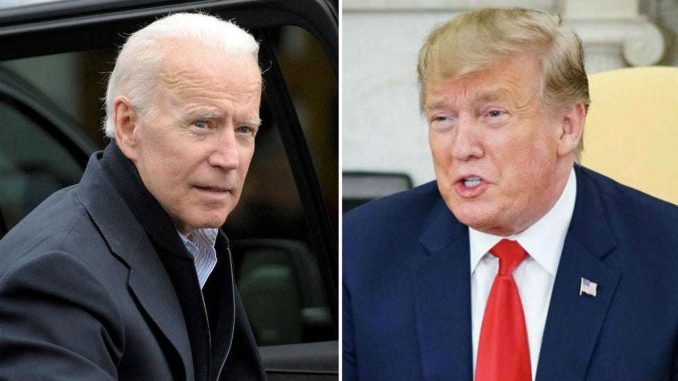
A late draft of an election audit that will be presented Friday to the Arizona state Senate will confirm that President Biden carried Maricopa County during the 2020 election, and by a wider margin than the final certified results showed.
The report, compiled by the Florida-based firm Cyber Ninjas, leaked to several Arizona media outlets on Thursday night, about a day before the final version will be presented. The Hill obtained one draft of the report from several Arizona Republican sources.
The draft acknowledges early on that the audit, which took five months and cost taxpayers and private donors millions, found no significant discrepancies between the certified count — which showed Biden carrying Maricopa County by about 45,000 votes — and a hand recount of the nearly 2.1 million votes cast.
“[T]here were no substantial differences between the hand count of the ballots provided and the official canvass results for the County,” the auditors wrote.
The recount actually found Biden won the county by a slightly wider margin than the official canvass showed: The Cyber Ninjas team added 99 votes to Biden’s tally, while subtracting 261 votes from former President Trump’s total, 204 votes from Libertarian nominee Jo Jorgenson, and 628 votes that were classified as write-ins, over votes or under votes. The certified vote count by Maricopa County found that Trump lost by 45,109 votes, while the Cyber Ninjas audit found Biden won by 45,469 votes.
The total discrepancy of 994 votes out of 2,088,569 votes cast amounted to an error rate of 0.047 percent, far below Biden’s margin of victory and well within the usual error rate of a standard election.
Several sources cautioned that the report was a draft, and that final language could change before Cyber Ninjas presents the findings to the Republican state legislature at 1 p.m. local time Friday afternoon, 4 p.m. Eastern time.
Critics of the so-called audit said the report justified their skepticism that anything was amiss with Maricopa’s vote-tallying practices. Maricopa County Recorder Stephen Richer, a Republican elected on the same ballot Trump lost, has long defended his election administrators.
“This means the tabulation equipment counted the ballots as they were designed to do, and the results reflect the will of the voters. That should be the end of the story. Everything else is just noise,” Maricopa County Board chair Jack Sellers (R) said in a statement.
Arizona’s Republican-controlled state Senate ordered the so-called audit earlier this year, under pressure from Trump in the midst of his burgeoning nationwide campaign to undermine faith and confidence in an election that he lost by a wide margin.
But even some of those Republicans who voted to authorize the audit later came to regret their votes, as Cyber Ninjas came under increased scrutiny for opaque and shoddy procedures. The company itself, run by a chief executive who openly embraced Trump’s false claims about the election results, had never before conducted an election audit.
“After admitting they unintentionally misled the public, I hope that today’s presentation by the Ninjas doesn’t intentionally mislead the public to further distrust of our election in Arizona,” state Sen. Paul Boyer (R) told The Hill in a text message. “They wasted nearly $6 million to tell us what we already knew meanwhile exacerbating an already unhealthy political environment.”
The draft audit makes a series of recommendations for changes to Arizona election law, from requiring new canvass rules before an election is certified to mandating paper ballots and fuller records maintained by election administrators. The audit also recommends the state join the Electronic Registration Information Center, a multi-state compact that helps election administrators maintain clean voter rolls.
But several critics of the audit process said the Cyber Ninjas team based its recommendations — and concerns the firm raised over improper or suspect procedures — on incorrect readings of Arizona election law or incomplete data. The firm used commercial databases to verify information about voters, a method that diverges from official data maintained by county elections officials.
Via The Hill
